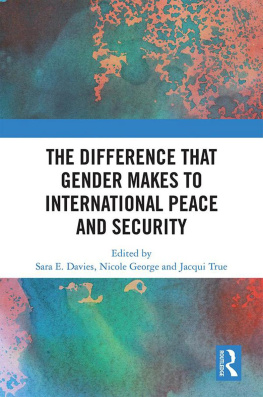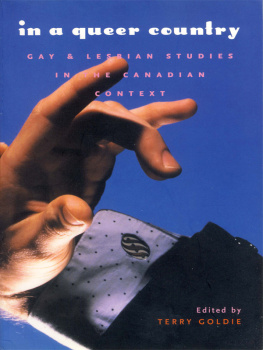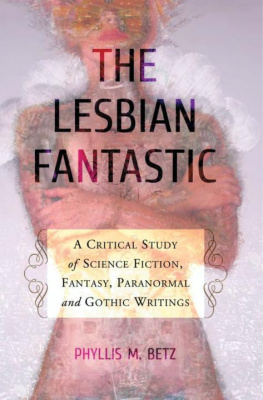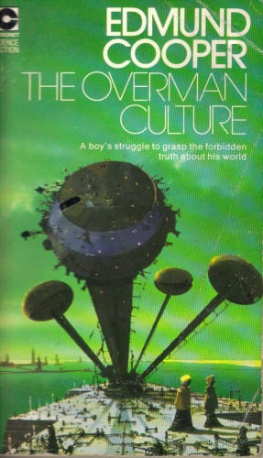
Lesbian Images in International Popular Culture
Lesbian images are everywhere these dayscable television, film, popular magazines, advertising, Internet and the newscreating desire in men and women alike, selling commercial products and services, and stirring up controversy on many levels. But do these images truly represent the diverse identities of women-centered women worldwide? This book addresses the limited access to images of diverse and international lesbian identities and experiences, in order to provide the reader with a more complete understanding of what it means to be lesbian in a global context. It investigates how lesbians portray themselves as well as how they are portrayed by others in several areas of popular culture, including television, film, the arts, Internet, advertising and the news. It features articles on U.S. lesbian cartoonists, Canadian viewer perceptions of lesbians on the cable show Queer as Folk, panoramic looks at lesbians representation in Australian and Spanish television programming, and in-depth explorations of films by Spanish director Pedro Almodvar, leading Indian film producers, and independent Chinese-American filmmakers.
This book was published as a special issue of the Journal of Lesbian Studies.
Sara E. Cooper is Associate Professor of Spanish and Multicultural & Gender Studies at California State University, Chico. Cooper edited The Ties That Bind: Questioning Family Dynamics and Family Discourse in Hispanic Literature and Film and has published articles in Kunapipi: Journal of Postcolonial Studies, Letras femeninas, Ciberletras, Journal of Lesbian Studies, Cuban Studies, Chasqui., Confluencia: Revista Hispnica de Cultura y Literatura, Tortilleras: Hispanic and Latina Lesbian Expression, Reading the Family Dance: Family Systems Therapy and the Literary Study, Mujeres latinoamericanas del siglo XX: Historia y Cultura, Women and War: A Historical Encyclopedia from Antiquity to the Present, and Womens Issues in North America and the Caribbean.
Lesbian Images in International Popular Culture
Edited by Sara E. Cooper
First published 2010 by Routledge
2 Park Square, Milton Park, Abingdon, Oxon, OX1 4 4RN
Simultaneously published in the USA and Canada
by Routledge
711 Third Avenue, New York, NY 10017
Routledge is an imprint of the Taylor & Francis Group, an informa business
2010 Taylor & Francis
Typeset in Garamond by Value Chain, India
All rights reserved. No part of this book may be reprinted or reproduced or utilised in any form or by any electronic, mechanical, or other means, now known or hereafter invented, including photocopying and recording, or in any information storage or retrieval system, without permission in writing from the publishers.
British Library Cataloguing in Publication Data
A catalogue record for this book is available from the British Library
ISBN10: 1-56023-796-1
ISBN13: 978-1-56023-796-9
Contents
Sara E. Cooper
Jen Bacon
Wendy Peters
Rebecca Beirne
Mnica Calvo and Maite Escudero
Mara DiFrancesco
Shamira A. Meghani
Hui-Ling Lin
Henriette Gunkel
Adrienne Shaw
Reta Ugena Whitlock
Katherine Wirthlin
Sara E. Cooper (Ph.D. University of Texas, Austin) is Associate Professor of Spanish and Multicultural & Gender Studies at California State University, Chico. Her research interests center on contemporary Latin America, Cuba in particular, especially issues of gender, sexuality, family systems, and humor. Cooper is editor of the essay collection The Ties That Bind and has articles in Cuban Studies, Chasqui, Confluencia, Tortilleras, and other critical anthologies. Founder of the MLA Cuban and Cuban Diaspora Cultural Production Discussion Group, Coopers current project explores the trajectory of humor in literature, film, and popular culture in post-revolutionary Cuba.
Jen Bacon is Director of Womens Studies at West Chester University and an associate professor of rhetoric. She teaches undergraduate and graduate courses in womens studies, lesbian studies, writing, composition studies and narrative studies. Her recent article, Teaching Queer Theory at a Normal School, appears in a 2006 special issue of the Journal of Homosexuality: LGBT Studies and Queer Theory: New Conflicts, Collaborations, and Contested Terrain. She is currently studying narratives of union, disunion, and repair in queer communities.
Wendy Peters teaches in the Department of Gender Equality and Social Justice at Nipissing University in North Bay, Ontario, Canada. This article is excerpted from a larger qualitative research project that explores representation and audience readings of race, class, sex, gender, and sexuality on Queer as Folk (U.S.). The purpose of this study is to explore relationships between marginality on and off screen, televisual representation, popular culture, and identities.
Rebecca Beirne is the author of Lesbians in Television and Text after the Millennium and the editor of Televising Queer Women: A Reader. She has published multiple essays discussing queer representation on television. She received her Ph.D. from the University of Sydney and is a Lecturer in Film, Media and Cultural Studies at the University of Newcastle.
Mnica Calvo is a Lecturer in the Department of English and German Philology at the University of Zaragoza, Spain, where she obtained her Ph.D. Her main research interests center on popular culture, the representation of gender and sexuality in the media, and the politics of contemporary U.S. historical narratives. She has published widely on lesbian narratives and movies, and also on the ethical dimension of historiographic metafiction.
Maite Escudero is a Lecturer in the Department of English and German Philology at the University of Zaragoza, Spain, where she received her Ph.D. Her research interests include the representation of gender, race and sexuality in contemporary cultural manifestations and literature. Her more recent publication is Long Live the King: A Geneology of Performative Genders (2009).
Maria DiFrancesco is an Associate Professor of Spanish at Ithaca College (Ithaca, NY). She received her Ph.D. and M.A. degrees from the University at Buffalo, Department of Romance Languages and Literatures. Her doctoral dissertation focused on transgression in contemporary Spanish womens writings. She is currently at work on a series of articles examining images of migrant women in contemporary Spanish literature and continues to nurture a scholarly interest in audiovisual culture.
Shamira Meghani earned her D.Phil. at the University of Sussex with a thesis entitled: Queering Postcolonial South Asian Nationalisms: Transgressive Archetypes in Narratives of the Nation. Her main research interests are sexuality, gender and the body in South Asian narratives in literature and film, in the context of the interrelated narratives of imperialism, nationalism, and religion/mythology. Her wider interests include postcolonial writing, representations of race and cultural difference, and narrative constructions of sexual dissidence. She co-convenes Sus(sex)ualities, a university-wide interdisciplinary postgraduate seminar series for researchers working on sexual themes and is a member of the steering committee for Brighton and Sussex Sexualities Network. Shamira currently teaches at the university of Sussex and the open University.










